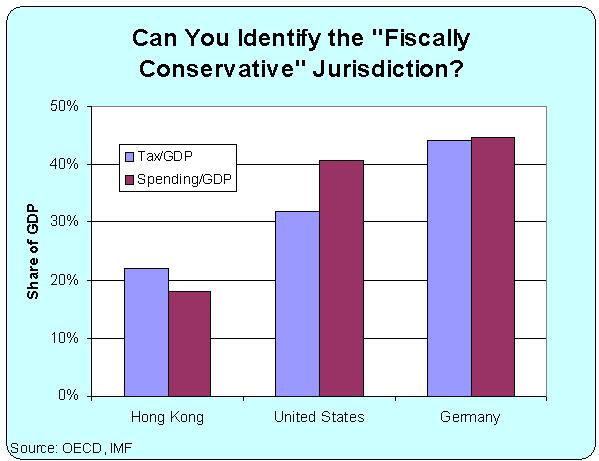By European standards, Germany is in pretty good shape.
There’s a very large welfare state and the tax burden is quite onerous, both of which hinder growth, but Germany has been more responsible than the United States in recent years. And while this may be damning with faint praise, this modest bit of fiscal discipline is helping the nation survive as many other European welfare states are on the verge of collapsing.
Moreover, Germany (sort of like Denmark) partially offsets the damaging impact of bad fiscal policy by being free market-oriented in other policy areas, such as trade, regulation, and rule of law.
Knowing all this information, how would you describe Germany’s economic policy? Would you say it was a semi-responsible welfare state? Would you say it had left-wing fiscal policy combined with a social market economy?
I’m not sure about the best description, but I know that only a crack-addicted nitwit would put it in the same category as Hong Kong.
Yet, in an otherwise unremarkable article about the fiscal crisis in Europe, the Washington Post referred to ” fiscally conservative Germany.”
Rather than go through a lengthy explanation of why this is absurd, I figure this chart demonstrates why the folks at the Washington Post are clueless (though, in fairness, perhaps Germany is “conservative” compared to the ideology of the reporters and editors in the newsroom).
Keep in mind that this is a country that has parking-meter taxes for prostitutes and a nation with a supposedly conservative Chancellor who is leading the charge for a global tax on financial transactions.
If Germany is “fiscally conservative,” I’m a socialist.

